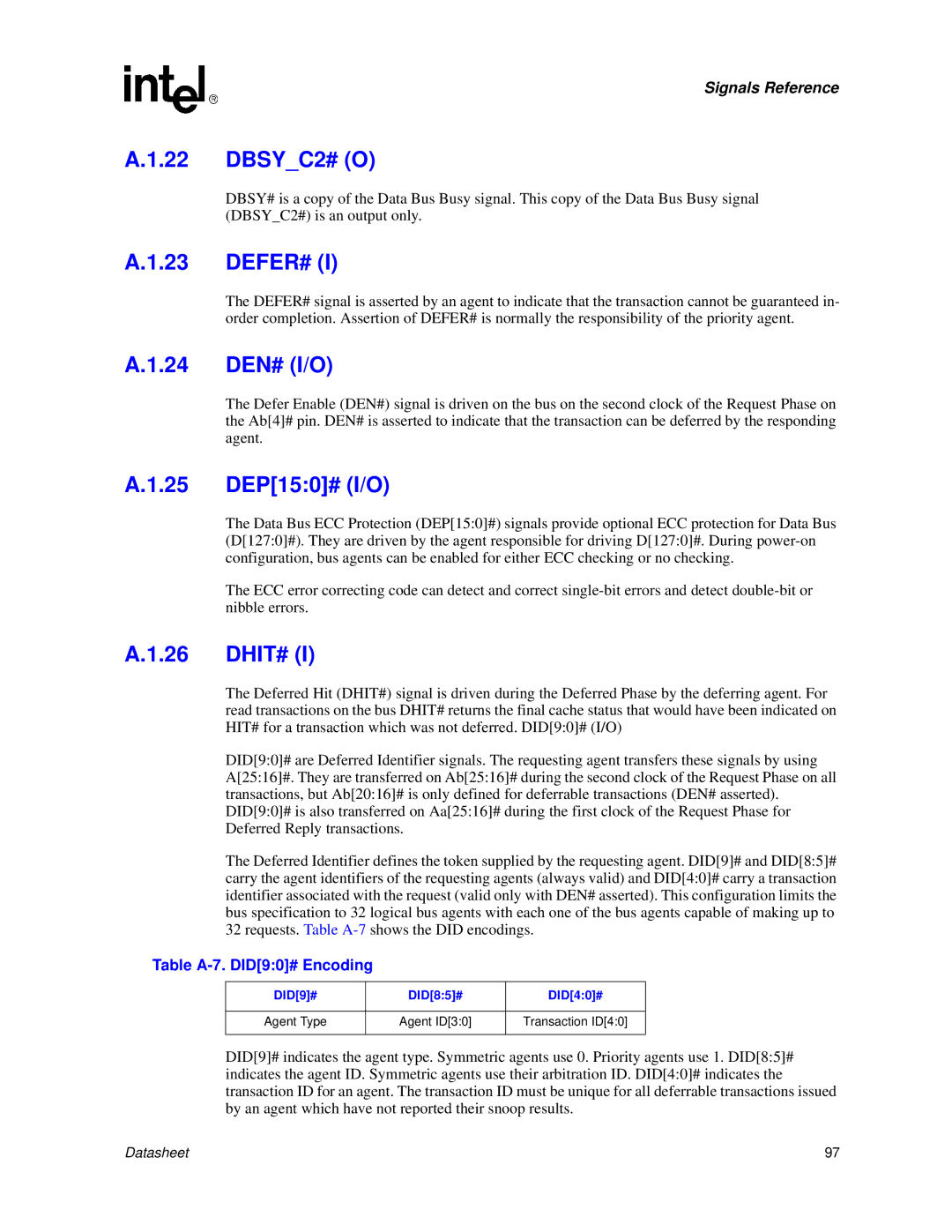Signals Reference
A.1.22 DBSY_C2# (O)
DBSY# is a copy of the Data Bus Busy signal. This copy of the Data Bus Busy signal (DBSY_C2#) is an output only.
A.1.23 DEFER# (I)
The DEFER# signal is asserted by an agent to indicate that the transaction cannot be guaranteed in- order completion. Assertion of DEFER# is normally the responsibility of the priority agent.
A.1.24 DEN# (I/O)
The Defer Enable (DEN#) signal is driven on the bus on the second clock of the Request Phase on the Ab[4]# pin. DEN# is asserted to indicate that the transaction can be deferred by the responding agent.
A.1.25 DEP[15:0]# (I/O)
The Data Bus ECC Protection (DEP[15:0]#) signals provide optional ECC protection for Data Bus (D[127:0]#). They are driven by the agent responsible for driving D[127:0]#. During
The ECC error correcting code can detect and correct
A.1.26 DHIT# (I)
The Deferred Hit (DHIT#) signal is driven during the Deferred Phase by the deferring agent. For read transactions on the bus DHIT# returns the final cache status that would have been indicated on HIT# for a transaction which was not deferred. DID[9:0]# (I/O)
DID[9:0]# are Deferred Identifier signals. The requesting agent transfers these signals by using A[25:16]#. They are transferred on Ab[25:16]# during the second clock of the Request Phase on all transactions, but Ab[20:16]# is only defined for deferrable transactions (DEN# asserted). DID[9:0]# is also transferred on Aa[25:16]# during the first clock of the Request Phase for Deferred Reply transactions.
The Deferred Identifier defines the token supplied by the requesting agent. DID[9]# and DID[8:5]# carry the agent identifiers of the requesting agents (always valid) and DID[4:0]# carry a transaction identifier associated with the request (valid only with DEN# asserted). This configuration limits the bus specification to 32 logical bus agents with each one of the bus agents capable of making up to 32 requests. Table
Table A-7. DID[9:0]# Encoding
DID[9]# | DID[8:5]# | DID[4:0]# |
|
|
|
Agent Type | Agent ID[3:0] | Transaction ID[4:0] |
|
|
|
DID[9]# indicates the agent type. Symmetric agents use 0. Priority agents use 1. DID[8:5]# indicates the agent ID. Symmetric agents use their arbitration ID. DID[4:0]# indicates the transaction ID for an agent. The transaction ID must be unique for all deferrable transactions issued by an agent which have not reported their snoop results.
Datasheet | 97 |
